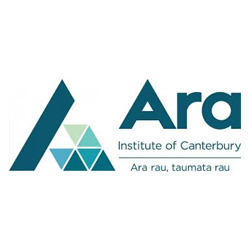
Institutional Programme-Design Strategies Supporting Forced Change
Status
Completed: 16 March 2012
Project Details
A project completed in 2012, undertaken by Christchurch Polytechnic Institute of Technology (CPIT), to investigate the impact of forced change, caused by the earthquake of 22 February 2011, on CPIT, decisions made with regards to programme design and the accompanying effect on students.
Aims:
The main aims of the project were to:
- explore the impact of the earthquakes on 3 levels: institutional effects; programme design deployment/implementation at a time of forced change; and impact of institutional/programme design changes on students
- examine the responses to forced programme design change, in particular, focusing on the decisions made regarding teaching and learning and assessment approaches and the impact these changes had on the institution, staff and students
- develop a set of recommendations/guidelines, based on sustainable strategies, to assist New Zealand educational organisations to be better prepared to be adaptive to changes, including those which arise from unforeseen circumstances.
Methodology:
The project used a case study methodology involving:
- a review of the literature
- case studies (of 6 selected programmes) on the impact of forced change on the organisation, the programme design process and on students were undertaken
- focus groups with students and staff on the impacts of the earthquake – focus group interactions were audio taped and transcribed for analysis
- survey questionnaires with students and staff to support the focus groups
- analysis of programme documentation (programme approval and amendments) pre- and post-earthquake.
Team

Dr Selena Chan
Research lead
Ara Institute of Canterbury
Martin Jenkins
Ara Institute of CanterburyStatus
Funding
$10,000.00 (excl GST)
Key Findings
The key findings from the project included:
- The consequences of the earthquake impacted on the time, resources and learning environments available to deliver programmes. In response to this, CPIT teaching programme teams adopted a range of strategies, often employing multiple strategies. These strategies included: restructuring the programme; wholesale programme re-design; changes to assessments; use of technology; changing delivery approaches; postponing programmes; and providing additional learning support.
- Many of the staff responses to programme change were focused on the challenges imposed by having to make rapid changes to their teaching delivery. Many had to adjust to changes not only in their professional lives but also in their personal lives due to the impact of the earthquake on their homes and families.
- Student responses to programme changes were more diverse, covering the following issues: difficulties in making comparisons; different staff and student expectations; some changes to assessments made the process more difficult.
- Many positive comments were gathered from students and staff. Of note, is the recognition by staff and students of the use of the Maori pedagogical whanau model.
- The project identified many good teaching and learning practices that were important to retain: student induction/orientation; staff induction/orientation; integration of more than one level in a programme.
Key Recommendations
The key recommendations are presented in the form of guidelines which have been derived from an analysis of CPIT’s experiences. Each institution's context will be different. The recommended guidelines include:
Institution’s role preparing for forced change | Institutions need to: be prepared for forced change beyond logistical issues and, in the context of this report, be prepared through institutional and staff development to better cope with forced change; provide resources that will assist the forced change process; and plan methods for collecting and evaluating changes made and the decisions that underpin these changes.
Preparation prior to forced change | From analysis of the data, the importance of prior preparation, in the form of clear, shared understandings of the influences of programme change on students’ learning experiences is required.
Supporting programme design through forced change | During an emotionally intense time, the need to make clear decisions is paramount. Institutional support is required at all levels and functions.
Moving on into the future | Although the earthquakes caused substantial disruption, they also offer CPIT an opportunity to find out how its organisational and academic systems coped with forced and rapid change. Therefore, it is important for institutions to have planned methods for collecting and evaluating changes made and the decisions that underpin those changes. Results from the evaluative process may be incorporated into future organisational and academic preparation.
A research report prepared by Selena Chan and Martin Jenkins.
(PDF, 685 KB, 39-pages).
- 20 March 2012